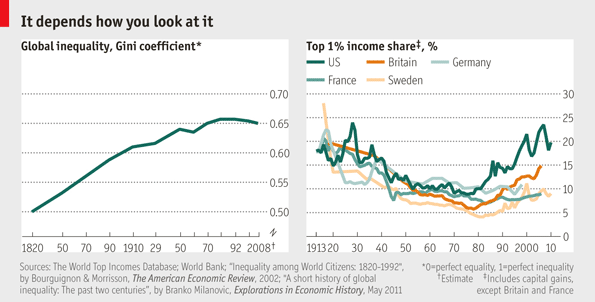To follow on, there's really no reason for the assumption that everyone other than the 0.01% would be doing even better if the incomes were more equitable. And there are many reasons for that. The huge increase in wealth concentration has not been matched with an increase in business investment. It has not been matched with new productivity enhancing innovations. It is instead existing technology being spread to more of the world population. And that is not sustainable.
But think how much better the very poor would be doing if consumption spending was higher. Consumption is the engine which drives market economies. By acting to keep consumption suppressed, poverty is even worse than it would be otherwise.
But think how much better the very poor would be doing if consumption spending was higher. Consumption is the engine which drives market economies. By acting to keep consumption suppressed, poverty is even worse than it would be otherwise.

 )
)






